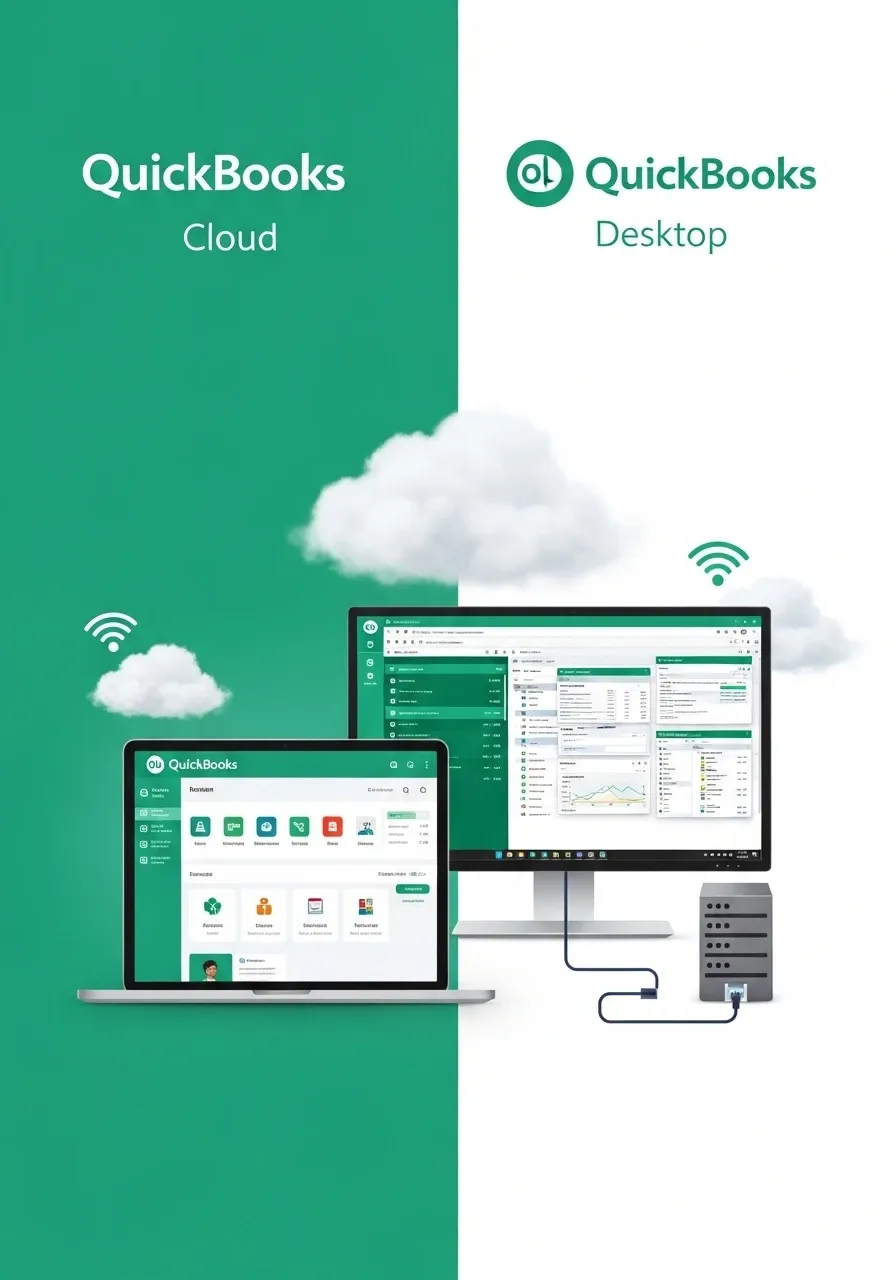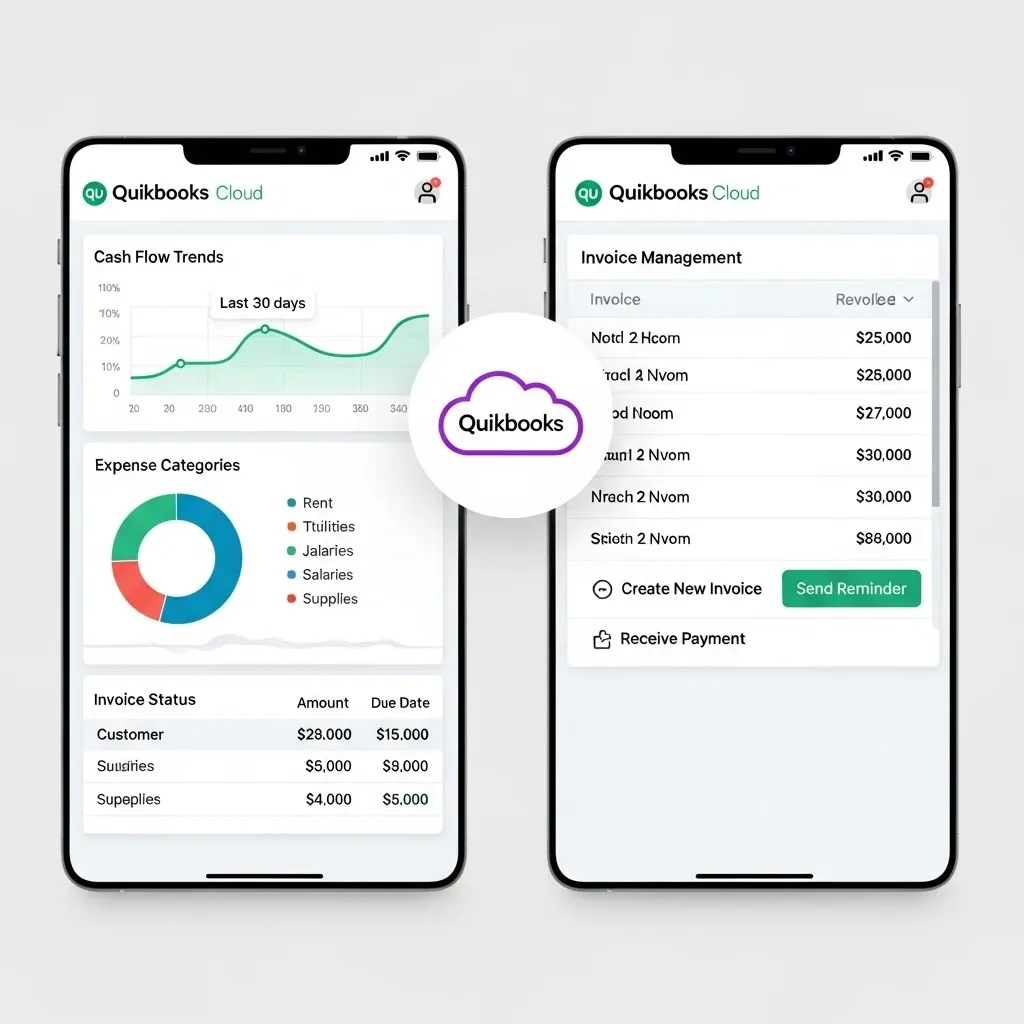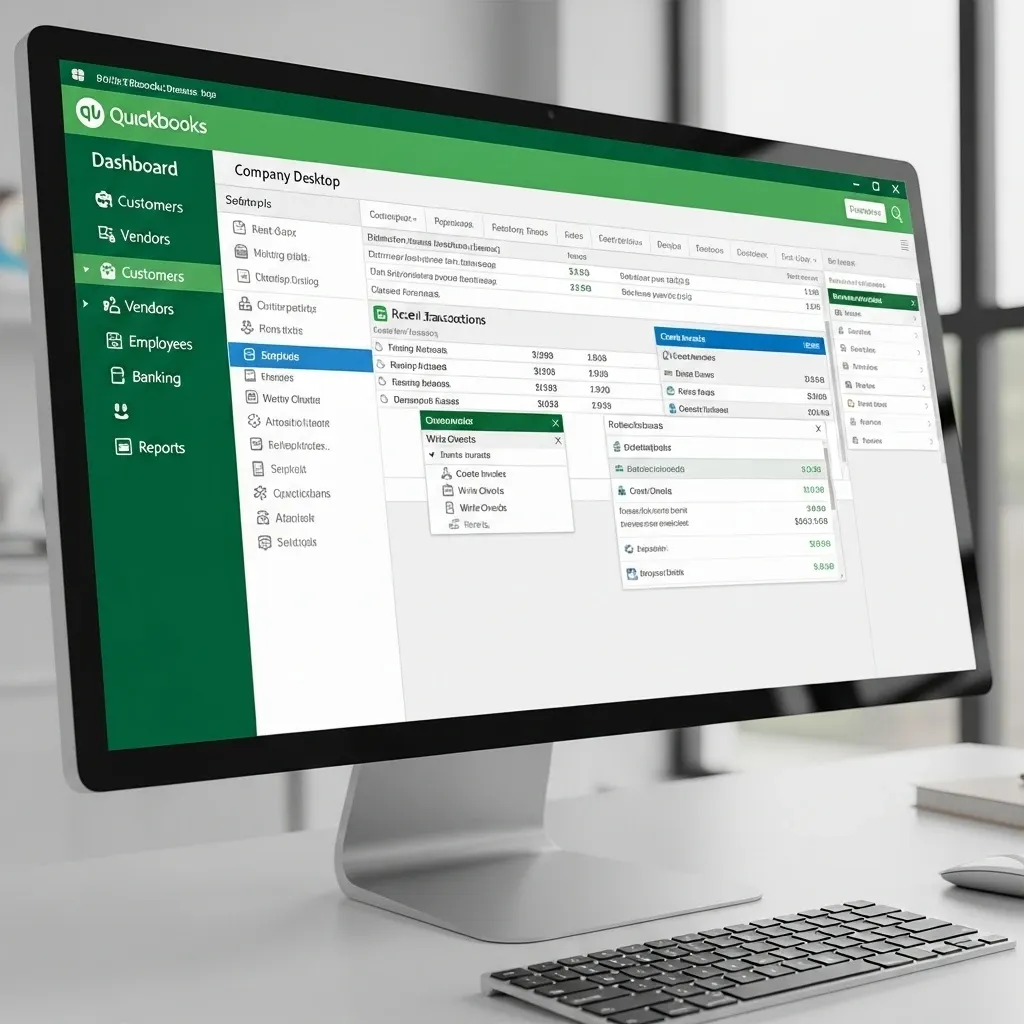QuickBooks Cloud vs Desktop: Key Differences You Should Know
In 2025, some things you can’t avoid talking about anymore, and one of them is how accounting software has quietly become the business backbone of business management.

Besides that, cloud adoption becomes more than just a buzzword in this scenario, with multiple businesses daily talking about moving solutions to the cloud. Now you can get a report instantly, by using your phone or tablet. But not everyone is thrilled about what cloud means, especially when you’ve used something that lives on your PC for years.
Here’s a question for you. Did someone ever ask you which movie is better - “The Lion King” or “The Lion King”? Or, which color do you like more - “Candy Apple Red” or “Scarlet red”? Sounds peculiar, right? Well, the same goes with “QuickBooks Online” and “QuickBooks Desktop”.
Yeah, today’s topic is about these two accounting software. One that has served for years or one that’s currently controlling the market.
Freedom to Work from Anywhere
QuickBooks Cloud gives you the flexibility to manage your books securely from any device—your laptop, tablet, or smartphone—as long as you have an internet connection.
QuickBooks Online: Pros and Cons
QuickBooks Cloud lives online. Users just need to log in from anywhere, and the data is available on secure Intuit servers, constantly updated. This makes collaboration a lot easier with multiple accountants and team members, or even your external bookkeeper can be in the same file at once.

What Works Well with the Online Version:
Access from anywhere: If you are travelling or your accountant is from another city, QuickBooks Online provides access to log in from tablet, phone, or laptop, eliminating the need to bring files physically or VPN into the office. If you’ve got remote teams or sometimes employees out in the field, this is a big advantage because it allows multiple members to log in (some versions).
Automatic Updates and Backups: The cloud version ensures you always stay updated by pushing features and patches. Simultaneously, it handles backups and eliminates the risk of data loss.
Collaboration: Businesses operating in multiple locations and handling multiple shifts often require several users to have access to the same data. QuickBooks Support secures team collaboration by instantly reflecting the changes one user made to another.
Simple, Predictable Pricing
Switch to a subscription model with QuickBooks Cloud and say goodbye to major annual software purchases.
Integrations and modern workflows: The online version tends to play nice with third-party apps, including bank feeds, payment processors, e-commerce, POS systems, and more. So, if you want smoother flows, invoices, payments, and reconciliation, QuickBooks edges it all without manual steps.
User Interface: People often decide to change software because of the user interface. A rigid interface makes it difficult for users to handle it. But QuickBooks Online changes the scenario with its modern and easy-to-understand interface.
AI: AI is another feather in QBO’s cap. It can automate bill generation, expense tracking, and invoicing by using Intuit Assist.
Cons:
Internet Connection: Reliant on internet connectivity is the foremost strength of QuickBooks Online. But this is the weakness, too. If your internet is flaky, you’ll feel it. This is non-trivial for places with irregular connectivity.
QuickBooks Desktop: Pros and Cons
QuickBooks Desktop is the classic one. The entire idea of QuickBooks started with this version. Once installed on a computer, it stores your files locally. Apart from this, it’s extremely feature-rich, especially for those managing accounting tasks independently or within a single workspace.

Pros of Desktop Version
Powerful inventory & manufacturing tools: If you’re handling lots of SKUs, making/delivering parts, needing bill-of-materials, multiple units of measurement, and tracking stock across locations, then choose the Desktop version.
Detailed Job Costing: Users who are managing constructions, contracting, or projects to track materials, labor, and QuickBooks desktop can benefit from it, by providing payroll and advanced reporting features.
Offline work & local control: If you don’t want to depend on the internet, or if your data policies need you to store data locally, Desktop gives you that.
Cons:
Installation, maintenance, & updates: You’ll need to install software on machines, and sometimes manage networked computers if there's more than one user. If this isn’t enough, updates may require manual steps.
Seamless Teamwork & Growth
QuickBooks Cloud empowers your entire team with real-time, multi-user access from different locations.
Real-Life Scenarios
Let’s look at a few situations so you understand what might map to your business.
- You run a small service business (consulting, freelancing, or small agency): So, you mostly send invoices, log expenses, and track time with a small team. You want to see your books easily, even while travelling. For this situation, QuickBooks Online is enough with less hassle and more flexibility.
- You are an inventory-heavy business, or do manufacturing: If you assemble, track BOMs, stock across multiple sites, and have complex job costing, QuickBooks Online Advanced would be better.
At Penieltech, what we usually recommend is that we list your must-have features, consider your growth path, check your internet reliability, and then compare what you’ll gain vs what you’ll give up with each version. Then whichever version you pick, ensure you get good support.
